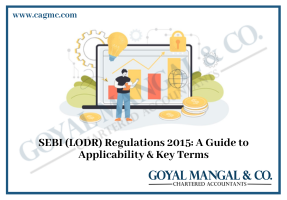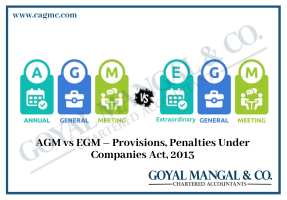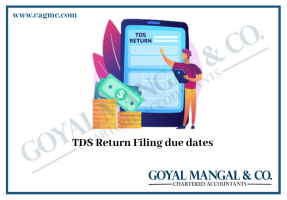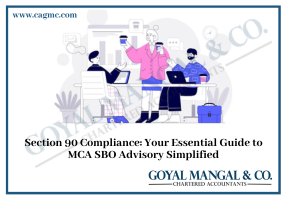 A consultation paper on redefining the idea of corporate “promoters” and moving toward the idea of a “person in charge” has been released by the capital market watchdog, the Securities, and Exchange Board of India. The idea has been made in response to a shift away from the traditional Indian ownership structure to the modern ownership structure, in which multiple people control an enterprise. Institutional investors and private equity players have significant investments in start-up businesses and the most renowned “unicorns” in the sector. Private equity firms have influence over decision-making through board representation and other mechanisms. Additionally, SEBI has proposed streamlining disclosures of group firms, rationalizing the concept of “Promoter Group,” and amending the current lock-in time rules. Lean more about the Reclassification of Promoters & Promoter Group Shareholders.
A consultation paper on redefining the idea of corporate “promoters” and moving toward the idea of a “person in charge” has been released by the capital market watchdog, the Securities, and Exchange Board of India. The idea has been made in response to a shift away from the traditional Indian ownership structure to the modern ownership structure, in which multiple people control an enterprise. Institutional investors and private equity players have significant investments in start-up businesses and the most renowned “unicorns” in the sector. Private equity firms have influence over decision-making through board representation and other mechanisms. Additionally, SEBI has proposed streamlining disclosures of group firms, rationalizing the concept of “Promoter Group,” and amending the current lock-in time rules. Lean more about the Reclassification of Promoters & Promoter Group Shareholders.
What do Promoter and Promoter Group mean?
A person who is listed as a promoter in the offer document is in control of the company, or on whose advice, directions, or instructions the issuer’s board of directors is used to act qualifies as a promoter for the purposes of the Issue of Capital and Disclosure Regulations, 2018 (ICDR). On the other hand, a promoter group would consist of the promoter’s family members and any other individuals or corporations that the brochure designates as “promoter groups.”
What do you mean by Reclassification?
Promoters of listed firms are subject to onerous disclosure reporting responsibilities. These are required by various rules. These disclosures support SEBI’s mission, which is to monitor, control, and ultimately safeguard the interests of investors in securities. SEBI is the Securities and Exchange Board of India. But when a promoter loses control of the business—through a takeover, a merger, an acquisition, or any other strategy—or when the company undergoes any type of reorganization, the issue becomes problematic.
Being categorized as a promoter entails disclosure requirements as well as potential liabilities in the event that the genuine promoters who run the company do not comply with the rules or commit fraud.
Since the promoter is responsible for making extensive disclosures and runs the risk of being held accountable for the company’s violations or improper actions, a promoter who has lost control of the company works to avoid being labeled as a “promoter” or “promoter group” and instead wants to be reclassified as “public.”
What are the Pre-conditions required for the Reclassification of the Promoter or Promoter Group?
The process for changing from promoter to public status is outlined in Regulation 31A of the SEBI (Listing and Disclosure Requirements) Regulation, 2015. The requirements that must be met by a promoter who requests reclassification are listed below. Promoters and anybody connected to them will not:
- Hold more than 10% voting rights.
- Exercise (direct or indirect) influence over the situation
- Possess any unique privileges granted by formal or informal agreements, such as a shareholder’s agreement, and
- Either has a representative on the board of directors or performs important managerial duties.
- Perform the role of a key manager for the specified company.
- Further, be a ‘willful defaulter’ as per the Reserve Bank of India Guidelines.
- Lastly, be a fugitive economic offender
What are the various conditions required for Post-Re-classifications?
The promoter seeking re-classification, subsequent to re-classification as public shall continue to comply with the aforesaid conditions. however, specifically for a period of at least three years, from the date of reclassification in the case of being a person on the board and the listed entity. Promoters will automatically be considered to have been reclassified as members of the promoter group if they fail to uphold the aforementioned standards.
The Listed Entity must comply with the following requirements if its promoter or promoter group is seeking reclassification: The mentioned organization must:
- comply with the minimum public shareholding requirement set forth in regulation 38 of these laws;
- not have trading in its shares suspended by the stock exchanges;
- not have any unpaid debts to the Board, the stock exchanges, or the depositories;
What are the Various steps Followed by the Promoter and the Listed Entity?
- The promoter who wishes to be reclassified must submit an application to the company’s board of directors, and however explain why he should be reclassified, and explain how the aforementioned requirements are satisfied.
- In the following board meeting, or within three months of the date it was received from the promoter, whichever comes first, the board of directors of the listed entity shall analyze the request and present it to the shareholders in a general meeting for approval, along with the board of directors’ opinions on the request.
- Between the date of the board meeting and the shareholder’s meeting where the promoter seeking reclassification is being considered, there must be a break of at least a month and a maximum duration of three months.
- The promoter requesting the reclassification shall have their request accepted at the general meeting by ordinary resolution, which shall be passed without the participation of the promoter requesting the reclassification or any of their relatives.
- The stock exchanges must then approve the proposal after receiving an application, provided that the promoter requesting the reclassification has met with all Regulation 31A requirements.
The shareholder group, taking into account the shareholding percentage, controlling rights, etc. of people who are linked to the existing promoter group member, must meet the requirements as stipulated for reclassification in the event that the promoter group is reclassified.
Derogation from Shareholder Approval
The following situations don’t require shareholder approval:
- Where the promoter seeking the reclassification and their connected parties collectively own less than one percent of the total voting rights in the listed firm;
- When the reclassification is in response to a divorce.
Timeline
| S.no. | Pointers | Duration |
| 1. | The Promoter’s application to the Company includes the necessary commitment. | Notification to the Exchange 24 hours after application receipt. |
| 2. | Hold a shareholder meeting and approve the reclassification with an ordinary resolution. Not applicable to situations that fall under the categories listed in the proviso to Regulation 31A (3)(a) (iii) | A minimum of one month, but no more than three, should pass between the board meeting and the shareholder meeting. Notification of the Exchange within 24 hours after the shareholder meeting’s conclusion. |
| 3. | Within 30 days of the conclusion of the shareholder’s meeting, submit the reclassification application and any supporting documentation to the Exchange. Applications must be filed to the Exchange within 30 days of the conclusion of the Board meeting for circumstances falling under the categories listed in the proviso to Regulation 31A (3)(a)(iii). | 30 days following the conclusion of the relevant shareholders or board meeting. notification of the Exchange within 24 hours of the listed entity’s stock exchange application’s submission for reclassification of status as a promoter/public. |
| 4. | To carry out the reclassification, the Company will receive a letter of acceptance. | After the company receives the letter of acceptance, the notification must be sent to the exchange within 24 hours. |
| 5. | To approve reclassification, a resolution must be adopted at the Board of Directors meeting. | within 24 hours following the end of the Board meeting, notification to the Exchange. |
| 6. | Application flaws must be fixed by the company within five days of notification. | 30 days after notification is received |
Conclusion
The regulatory system must adapt to the faster rate at which investor perception in India is changing. The capital market will be significantly impacted by SEBI’s decision to change the paradigm from “Promoter/Promoter group to “Person in Control” because it will result in significant changes to a number of SEBI regulations, including ICDR, LODR, SAST, PIT, etc., and open the door for the implementation of a more comprehensive framework for IPOs.







